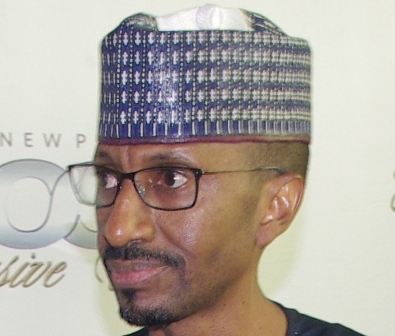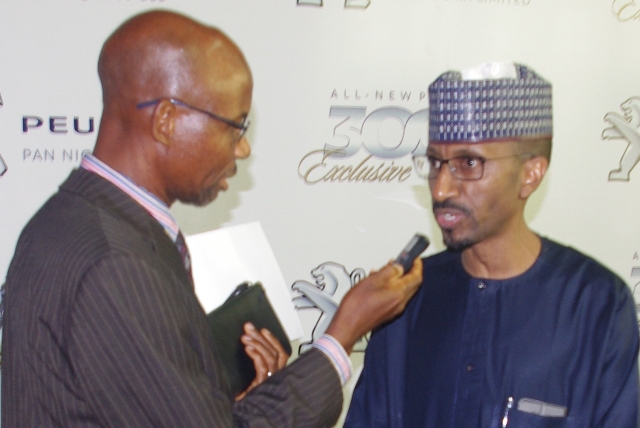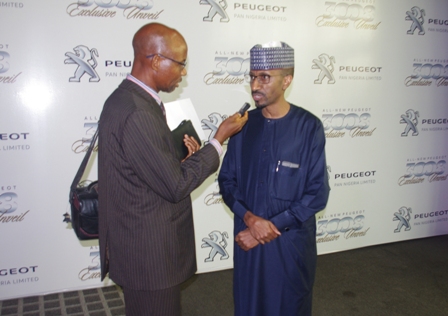Peugeot Automobile Nigeria Limited (now PAN Nigeria Limited) used to be a leading Nigerian automobile manufacturer, making cars from Completely Knocked Down (CKD) parts with a high density of local content.
 But government’s anti-developmental policies over the years caused a major setback to industrialization in the country, a situation in which the nation’s auto industry still struggles to recover from.
But government’s anti-developmental policies over the years caused a major setback to industrialization in the country, a situation in which the nation’s auto industry still struggles to recover from.
However, introduction of a new automotive policy, effective from 2014, has not only kick-started revival of the nation’s moribund automobile sector, it has importantly emboldened PAN Nigeria Limited to set out a journey towards the good old days, when it used to manufacture the likes of the then popular and fully tropicalized Peugeot 504 for Nigerian roads.
Recently, the company launched into the Nigerian market, Peugeot 3008, a Sports utility Vehicle (SUV), which, according to the company’s Managing Director, Alhaji Ibrahim Boyi, would be assembled locally.
In an exclusive chat with Motoring World’s editorial crew at the occasion, Alhaji Boyi spoke on issues relating to the company’s plan towards returning to a full blast auto manufacturing, the significant of newly passed Nigerian Auto Industry Development Bill by the national Assembly and many more , which we are serving you in this edition of Motoring World’s Executive Chat. Enjoy it…
Peugeot used to be a leading auto manufacturer in Nigeria with high level of local content. What plans are you putting in place towards returning the company to those good old days?
IBRAHIM BOYI: Our journey back to leadership has started. We have made a tremendous progress in restarting our factory operation. And, as you are aware, since 2014, two of our models have been produced locally. This car(Peugeot 3008) we launched here today will also be produced locally in a matter of months. And we assure Nigerians and all our customers that Peugeot is on its way back to recovery and reclaim its rightful place in the automotive sector, which is always the leadership position.
It is on record that Peugeot used to be a leading auto manufacturer in Nigeria and the infrastructure are still on ground. How far have you gone in the journey back to the good old days?
IBRAHIM BOYI: We have gone a lot far. And as you rightly said, Peugeot and PAN have always been ahead of the industry. We have the most comprehensive infrastructure for automotive industrial operations in Nigeria. And we have leveraged on that strength to make sure that we drive the development of the auto policy.
 As at today, I can assure you that we are ahead of other players in the market in terms of our local operations. And we are already trying to expand that. We have, since 2014, signed a CKD (Completely Knocked Down) programme with Peugeot of France. And no other company here has achieved that feat. And we are in the process of investment and making sure that we commence our CKD programme as quickly as possible. We are on path. And we trust the auto policy has enabled and emboldened us to take the steps. And in no time, I am sure we would assert our position in the industry as a leader.
As at today, I can assure you that we are ahead of other players in the market in terms of our local operations. And we are already trying to expand that. We have, since 2014, signed a CKD (Completely Knocked Down) programme with Peugeot of France. And no other company here has achieved that feat. And we are in the process of investment and making sure that we commence our CKD programme as quickly as possible. We are on path. And we trust the auto policy has enabled and emboldened us to take the steps. And in no time, I am sure we would assert our position in the industry as a leader.
Last year, the nation’s Automotive Industry Development Bill was once again passed by the national assembly. As a top executive member of the Nigerian Automobile Manufacturers Association(NAMA), what does this mean to Peugeot and the industry?
IBRAHIM BOYI: It means more assurance and certainty of the industry. It means comfort for investors, because there is now a long-term view of the way and manner the industry is going to be run. But you know every law is as strong and as effective as its implementation. We believe that once the implementation is right, once the government continues to implement the programme properly, the auto industry should bounce back. And the auto industry bill is one of the key triggers and elements necessary for the resurgence of the industry. So we are very happy with that development. And being an executive bill, we have no doubt that the government will sign the bill into law. And we look forward with a lot of optimism towards the implementation of that bill.
 The auto fiancé bank been long waited. As an informed leader of the auto industry, would you tell Nigerians where we are as regards the programme?
The auto fiancé bank been long waited. As an informed leader of the auto industry, would you tell Nigerians where we are as regards the programme?
IBRAHIM BOYI: There is a lot of progress being made, a lot of regulatory issues are closed, and a lot of questions, inter-ministerial and interdepartmental issues are being addressed. But I can assure you that it is also part of the auto policy and hopefully part of the acts. So we are confident that these elements, once they come on board, once they start to be implemented, it is going to transform the auto industry in Nigeria.
Today what is Peugeot’s market share in Nigeria?
IBRAHIM BOYI: Our market share is about 10% of the market
What figure are you targeting by the end of 2018?
IBRAHIM BOYI: It’s leadership position. Like I said, our vision and objective is to regain our leadership position, while we control 40-50% of the market.
What is your aspiration for Peugeot in the next one decade?
 IBRAHIM BOYI: To become the leader of the industry, as it has always been and to be able to provide economic opportunities for Nigeria, in terms of employment, in terms of dealership and in terms of other logistics services and local component development.
IBRAHIM BOYI: To become the leader of the industry, as it has always been and to be able to provide economic opportunities for Nigeria, in terms of employment, in terms of dealership and in terms of other logistics services and local component development.
From a survey we carried out, many Nigerians prefer imported used vehicles to made-in-Nigeria vehicles, because of price difference. What have you to tell such Nigerians?
IBRAHIM BOYI: Price is not independent of many other things. Price is determined by many other factors. If we are able to grow local skill and build local capacity, we can grow the skill and start local component industry. We can begin to crash prices of motor cars. Price should not be a reason for anything, because there is a level of activity that determines price that you charge. Today, because of low activity, a lot of organizations are not able to operate at a profitable level or on a scale that can justify the level of investment. But you know, once this policy is being implemented, we’ll see stability in the auto industry. We’ll see the market growing. And definitely that will impact on the prices local components makers charge on their products.
For a good part of 2017, things were tough for the auto industry, due to FOREX scarcity. What is the situation now?
IBRAHIM BOYI: Things are getting better. And we are confident that the economy will continue to improve, and we’ll see stability in the FOREX market and access to FOREX,, and we hope that 2018 will probably be better than what it was last year.
What impact has the ban on importation of used vehicles through the land border on the industry?
IBRAHIM BOYI: It’s very good for the industry. The second-hand market remain the biggest threat to the survival and growth of the local industry. If that is not addressed, there is no way the local auto industry can grow. So we are very happy and welcome such development.
On a personal note, you used to be in the oil and gas industry. Why did you cross to the auto industry?
IBRAHIM BOYI: My aspiration in life is just to make things better. So whether I am in oil and gas or in auto or textile industry, my aspiration is: How can I contribute my knowledge, my skill, my education to be able to improve things. And that is what I’ve done. I had work in the oil and gas industry, tried to improve things there. Now I am in the auto industry, and I am trying to improve things in the auto industry as well.
So who is Alhaji Ibrahim Boyi?
IBRAHIM BOYI: Alhaji Ibrahim Boyi is here. I am 55-year-old. I am married with children. And I am from Kaduna State. I am MD/CEO of PAN Nigeria Limited.
What do you do at leisure?
IBRAHIM BOYI: I play with family. I travel. I read. I watch movies.



